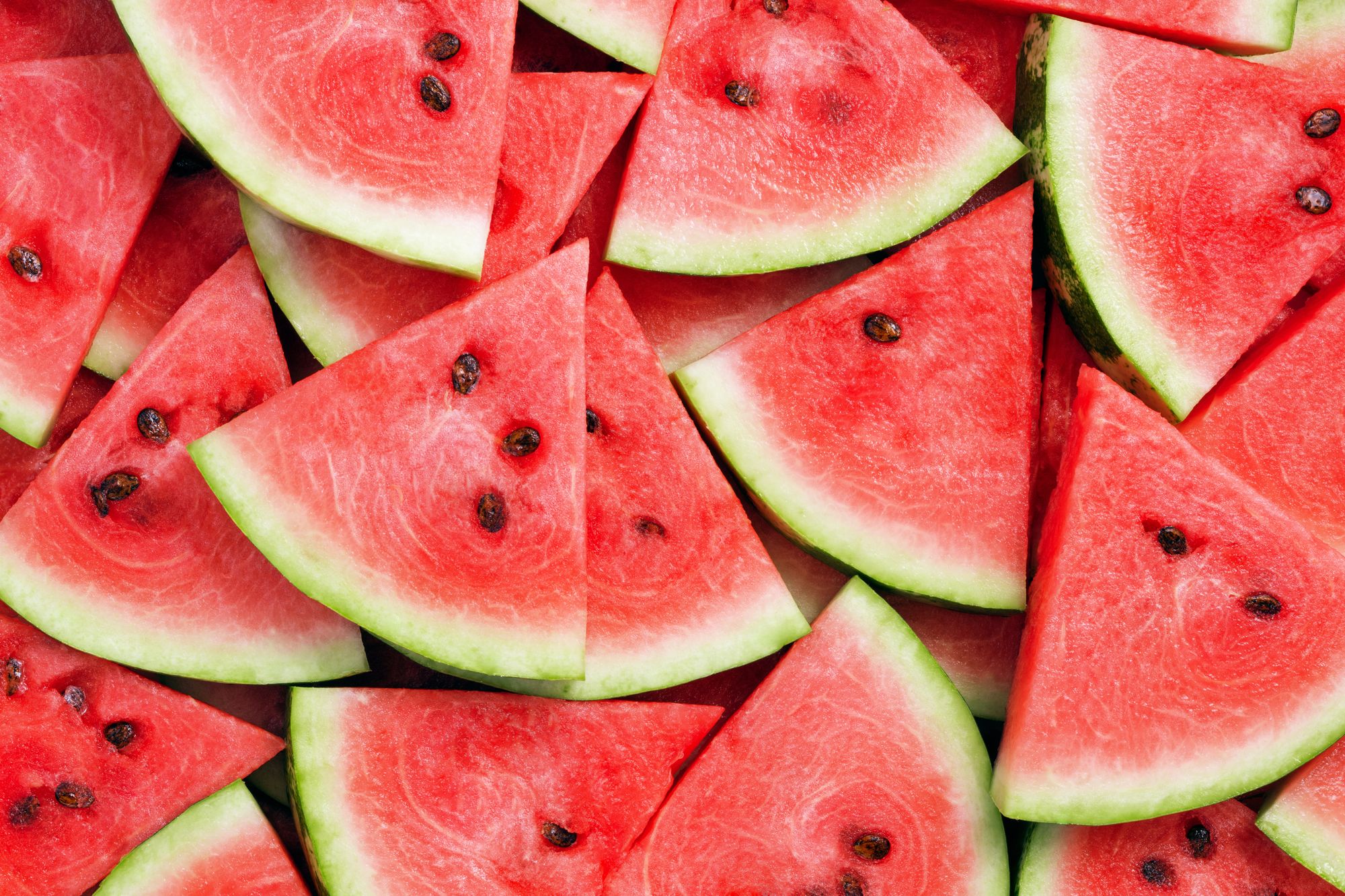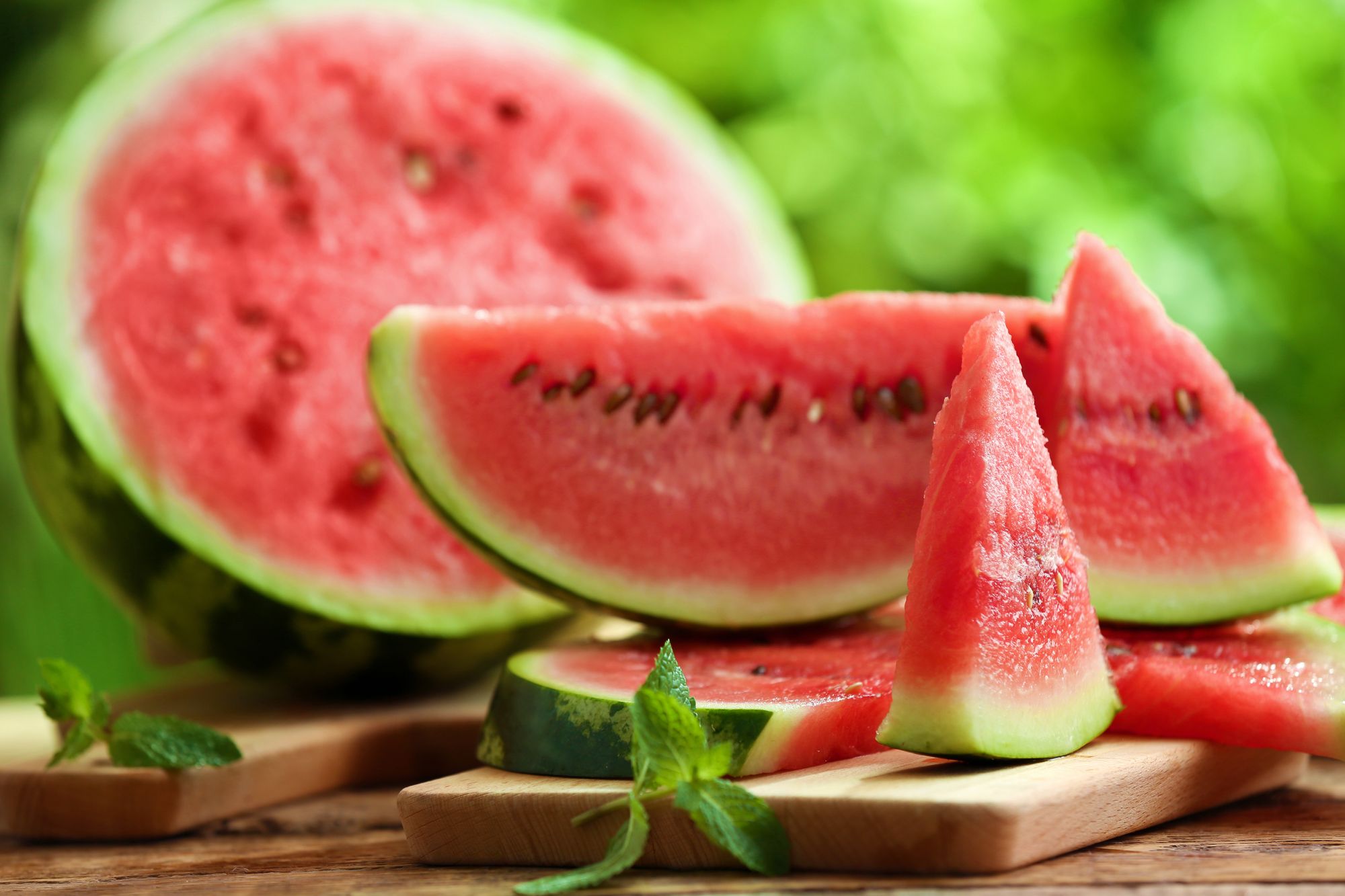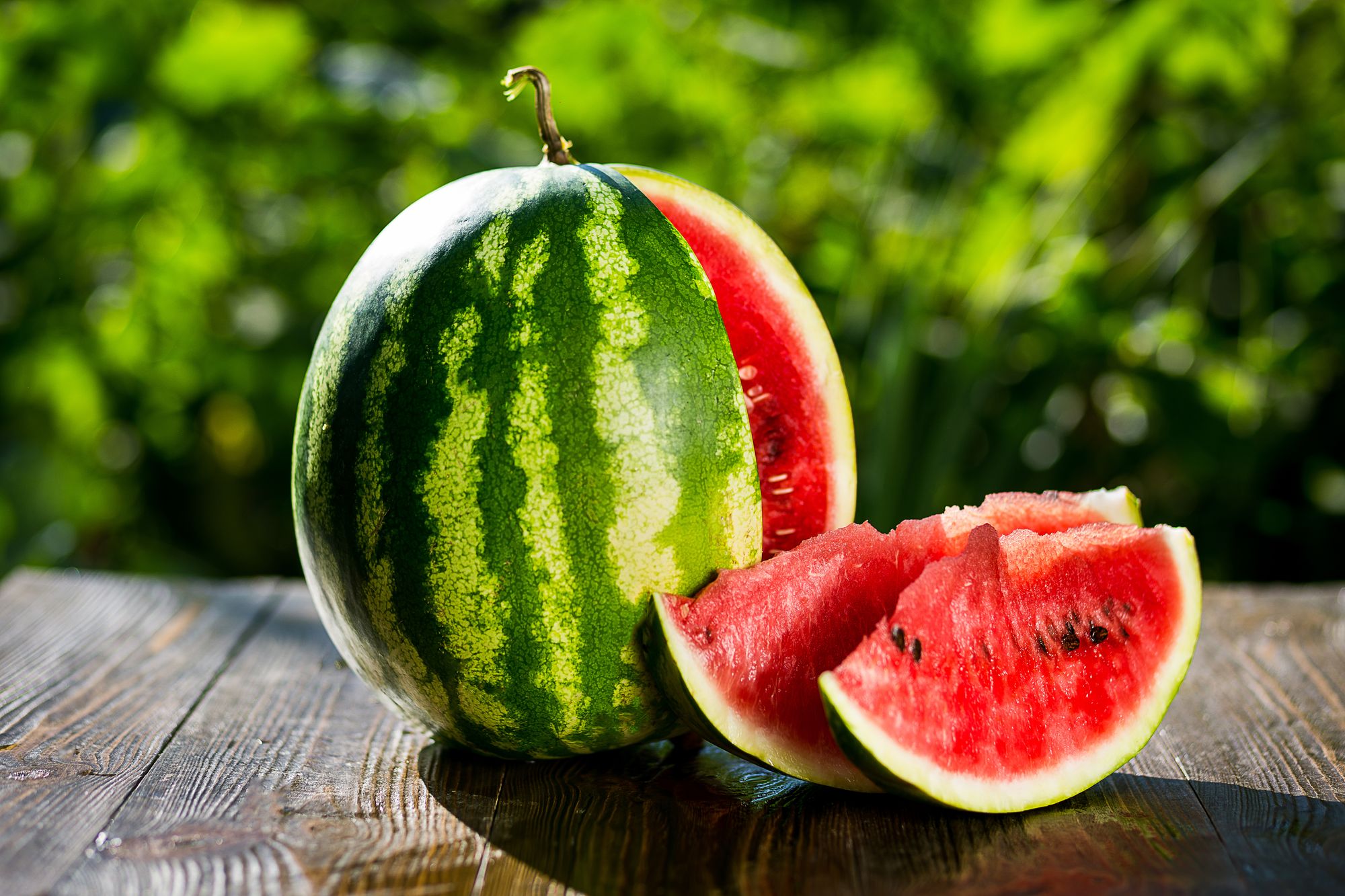With the peak watermelon season underway, it's the perfect time to indulge in these refreshing and hydrating melons. Known as nature's candy, melons offer a plethora of nutritional benefits. Among them, watermelons stand out for their abundance of antioxidants, vitamins A and C, and various essential nutrients. What sets watermelons apart is their relatively low sugar content compared to tropical fruits—just 9 grams per cup of cubed watermelon.
While the light and low-calorie nature of watermelon may tempt you to consume it freely, moderation remains essential for a healthy lifestyle. Excessive consumption of even the healthiest foods can have consequences. So, what does science say about the overall impact of watermelon on your well-being? In this article, we delve into the scientific research to uncover both the benefits and potential side effects associated with enjoying this delightful summertime fruit. Additionally, we'll explore another refreshing and vitamin C-rich variety of nature's candy for your information.
Exploring Watermelon's Nutritional Value: What the Numbers Say

When it comes to the nutritional breakdown, a single wedge of watermelon, weighing approximately 286 grams, offers the following according to the USDA:
- 85.8 calories
- 1.7 grams of protein
- 0.4 grams of fat
- 21.6 grams of carbohydrates
- 1.4 grams of fiber
- 17.7 grams of sugar
- 80.1 milligrams of vitamin A (9% DV)
- 23.2 milligrams of vitamin C (26% DV)
- 0.13 milligrams of vitamin B6 (8% DV)
- 320 milligrams of potassium (7% DV)
While the nutritional composition of watermelon highlights its potential health benefits, it's essential to also be aware of the possible side effects that can arise from consuming this fruit. Surprisingly, some of these effects may catch you off guard. To gain a comprehensive understanding of both the advantages and drawbacks of consuming watermelon, let's dive deep into the scientific realm to explore how your body may respond when you indulge in this delicious fruit.
12 Multifaceted Benefits of Consuming Watermelon

Watermelon, with its tantalizing sweetness and refreshing juiciness, not only pleases the palate but also offers a plethora of health benefits. Supported by scientific research, here are twelve remarkable ways in which indulging in this delectable melon can significantly enhance your overall well-being:
1) Bolsters Immune Health:
Watermelon's notable vitamin C content plays a vital role in fortifying the immune system. Vitamin C acts as an antioxidant and supports immune defense mechanisms. A study published in the Nutrients journal demonstrated that vitamin C supplementation reduced the duration and severity of respiratory tract infections, enhancing immune function.
2) Ensures Optimal Hydration:
Composed of approximately 92% water, watermelon serves as a fantastic hydrator. Research published in the Journal of Sports Sciences found that watermelon juice effectively restored hydration and electrolyte balance after exercise, making it an ideal post-workout hydrating choice.
3) Facilitates Post-Workout Recovery:
Watermelon's L-citrulline content has shown promising results in post-exercise recovery. A study published in the Journal of Agricultural and Food Chemistry revealed that athletes who consumed watermelon juice experienced less muscle soreness and a slower heart rate recovery after intense exercise, indicating its potential for aiding in recovery.
4) Shields against Cancer:
Watermelon's rich antioxidant profile, particularly lycopene, contributes to its cancer-preventive properties. Research published in Cancer Epidemiology, Biomarkers & Prevention suggests that lycopene intake is inversely associated with the risk of certain cancers, such as prostate cancer.
5) Enhances Vision Health:
Watermelon's carotenoids, including lycopene and vitamin C, support healthy vision. A study published in JAMA Ophthalmology found that a higher dietary intake of antioxidants, including vitamin C, was associated with a reduced risk of age-related macular degeneration, a leading cause of vision loss.
6) Boosts Satiety:
Watermelon's high water and fiber content make it a satisfying choice for promoting satiety. A study published in the journal Appetite indicated that water-rich fruits, including watermelon, increased satiety and reduced subsequent food intake, potentially aiding in weight management.
7) Supports Healthy Blood Pressure:
Watermelon's potassium content and beneficial plant compounds contribute to blood pressure regulation. A study published in the American Journal of Hypertension demonstrated that watermelon extract led to reductions in blood pressure levels among individuals with prehypertension or stage 1 hypertension.
8) Assists in Weight Management:
Watermelon's low-calorie nature and high water content make it a favorable addition to weight management diets. Research published in the journal Nutrients showed that watermelon consumption led to increased satiety and reduced hunger levels, which could support weight loss efforts.
9) Nutritious Seed Snack:
Contrary to popular belief, watermelon seeds offer nutritional value and can serve as a healthy snack. They are rich in protein, minerals (such as magnesium, iron, and zinc), and healthy fats. A study published in the Food Science and Technology journal highlighted the nutritional benefits of roasted watermelon seeds.
10) Aids in Libido Enhancement:
Watermelon's citrulline content has gained attention for its potential effects on blood flow and libido. Research published in Urology demonstrated that oral citrulline supplementation improved erectile hardness in men with mild erectile dysfunction, suggesting a positive impact on sexual health.
11) Promotes a Healthy Heart:
Watermelon contains compounds, including citrulline, that support cardiovascular health. A study published in the American Journal of Hypertension found that watermelon extract reduced arterial stiffness and blood pressure in individuals with prehypertension or stage 1 hypertension, potentially benefiting heart health.
12) May Alleviate Asthma Symptoms:
Watermelon's high vitamin C content, along with its overall antioxidant profile, may offer protective effects against asthma symptoms. A study published in the Nutrients journal suggested that increased fruit and vegetable intake, including watermelon, was associated with reduced asthma symptoms and improved lung function.
Embrace the delectable taste of watermelon and unlock its myriad of health benefits. Supported by robust scientific studies, watermelon proves to be a remarkable addition to a well-rounded and nourishing diet, offering both culinary pleasure and potential wellness advantages.
Exploring 3 Potential Drawbacks of Watermelon Consumption

While watermelon offers numerous benefits, it's important to acknowledge a few potential downsides associated with its consumption. Here are three aspects worth considering:
1) Digestive Issues:
Watermelon contains fructose, a type of sugar that falls under the FODMAPs category. Some individuals with digestive issues, such as irritable bowel syndrome (IBS), may be sensitive to FODMAPs and experience symptoms like gas, diarrhea, or abdominal discomfort after consuming watermelon. If you suspect watermelon contributes to digestive troubles, an elimination protocol or limiting FODMAP intake may be worth considering.
2) Blood Sugar Impact:
Watermelon's sweetness is attributed to its fructose content, which can cause a slight increase in blood sugar levels. While watermelon has a low glycemic load (GL), indicating a minimal impact on blood sugar levels, it's still important for individuals with prediabetes or diabetes to monitor their intake. The American Diabetes Association suggests that, when consumed in moderation as part of a balanced diet, watermelon can be safe for individuals with type 2 diabetes.
3) Migraine Trigger:
A study published in the Postgraduate Medical Journal found that watermelon could potentially trigger migraines in susceptible individuals. The research indicated a higher incidence of migraines associated with watermelon consumption compared to other fruits. Approximately 30% of participants experienced migraines within a short time after consuming watermelon. If you are prone to migraines, it may be beneficial to monitor your reaction to watermelon and consider avoiding it if it triggers migraines.
Is watermelon Beneficial for Your Health?

Despite these potential drawbacks, watermelon remains a beneficial fruit. It provides essential vitamins and offers various proven health advantages, including hydration and support for heart health. As long as watermelon is consumed in moderation, in conjunction with a well-balanced diet comprising fats, proteins, fiber, and other carbohydrates, it can be a safe and nutritious choice.
It's essential to be mindful of individual sensitivities and health conditions, adapting watermelon consumption accordingly. By understanding the potential limitations and incorporating watermelon into a balanced lifestyle, you can enjoy its refreshing taste and harness its positive effects on well-being.

